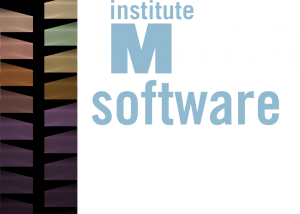 |
Roskilde University The Programming, Logic and Intelligent Systems (PLIS) group at Roskilde University investigates foundations, tools and languages for the development of adaptable, reliable, human-oriented computer systems. The group’s research covers theoretical foundations, languages, tools and semantic models together with application areas. The main research topics are: Knowledge-based systems and intelligent interaction with systems, Logic and knowledge representation, and Programming languages and tools. |
 |
University of Bristol The Bristol Microelectronics Research Group is a team of world-leading academic experts in computer architecture, design verification, fault tolerance, reconfigurable technologies and high performance computing. The group brings together researchers from a range of academic disciplines in order to address its primary research theme of “Energy Aware COmputing” (EACO), with expertise across the entire system stack, from transistors up to software applications. See work under progress for a description of work at the University of Bristol team. |
 |
IMDEA Software Institute The main focus of the Madrid Institute for Advanced Studies in Software Development Technologies (IMDEA Software Institute) is to perform the research of excellence required to devise methods that will allow the cost-effective development of software products with sophisticated functionality and high quality, i.e., safe, reliable, and efficient. The focus of the Institute includes all phases of the development cycle (analysis, design, implementations, validation and verification), including methods, languages, and mechanisms. Its distinguishing feature is the concentration on approaches that are rigorous and at the same time allow building practical tools. |
 |
XMOS Ltd XMOS Limited is a fabless semiconductor company that was founded in 2005 in Bristol, United Kingdom. XMOS develops technology for an event-driven multi-threaded processor engine. It has with tightly integrated pin I/O and timing control, allowing many hardware protocols to be implemented in software. The XMOS architecture enables systems to be constructed from multiple XCore processors connected by communication links. The architecture is scalable, event-driven and is designed to minimize energy. The XCore instruction encoding gives rise to very compact programs, optimizing use of memory and minimizing power to access instructions. |





